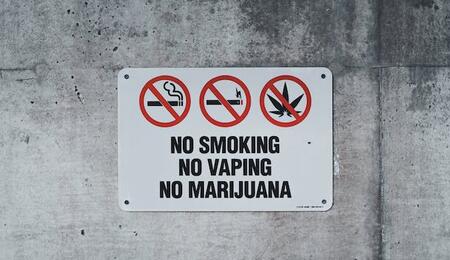Could the UK be going Smoke Free?

On Oct. 4, British Prime Minister Rishi Sunak proposed a so-called “smokefree generation” law for England that would slowly prohibit the sales of cigarettes by raising the legal age to purchase by one year each year. Sunak also advised likely changes to laws regarding vaping products, including e-liquid flavours, nicotine-free e-liquids, and disposable vapes.
The smokefree generation proposition would currently apply only to products comprising tobacco and cigarette papers. The proposal so far does not cover vaping products or nicotine pouches, although that could all change at a later date. The government says 71% of British adults back a smoke-free generation law.
“For a Conservative, measures that restrict choice are never easy. What has ultimately swayed me is that none of us, not even those who smoke, want our children to grow up to be smokers, and this change can make that a reality. It will save more lives than any other decision we could take.” UK PM Rishi Sunak
The Labour Party has vowed to “lend” the Conservatives the votes he’ll need for passage. Because UK countries create health laws independently, changes would only affect England currently; however, it has said that it will “develop proposals to align policy approaches.”
The “smoke-free generation.”
The smoke-free generation plan would stop anyone who was born on or after Jan 1, 2009, from being able ever legally to buy cigarettes or tobacco products in England. The recommendation could be adjusted before it becomes legislation and will likely be contested in court if it does pass. The idea came about after the first smokefree generation legislation was passed in New Zealand in December 2022.
Smoke-free generation cynics believe that the law will only serve to boost illegal markets, which are already a concern due to the country’s high tobacco taxes. Furthermore, the law, in its definition, discriminates based on age, which makes it a genuine target for legal challenges.
Ban on flavoured vapes or disposables?
The Conservative government is also suggesting vague restrictions on vaping products, noting that the government is “considering new legislation to control the flavours of vapes and their depictions” to reduce teen vape use.
The government appears committed to taking some action on flavours. However, they aren’t giving much away in their policy document, which recognises that flavoured vapes are preferred by adults and improve the outcome of attempts to quit smoking.
It was reported by British news outlets back in September that a proposal to ban disposable vapes was being considered. Much of the government’s worry surrounds the environmental damage caused by improper disposal of single-use vapes. However, the main force for any ban is likely the growing moral panic over teenage vaping.
Here is a full list of the vaping policy changes that are under consideration:
- Restricting flavoured vapes
- Regulating packaging and presentation
- Regulating point-of-sale displays
- Restricting the sale of disposable vapes
- Introducing an age restriction for non-nicotine vapes
- Exploring restrictions for other nicotine products like nicotine pouches.
- Protecting children.
The idea of banning flavoured or disposable vapes must be frustrating to UK vaping advocates, whose work has led to the least invasive and most liberal vaping product regulations to exist worldwide. The truth is that all that could change very soon, trusting how the government offsets its prerogatives.




